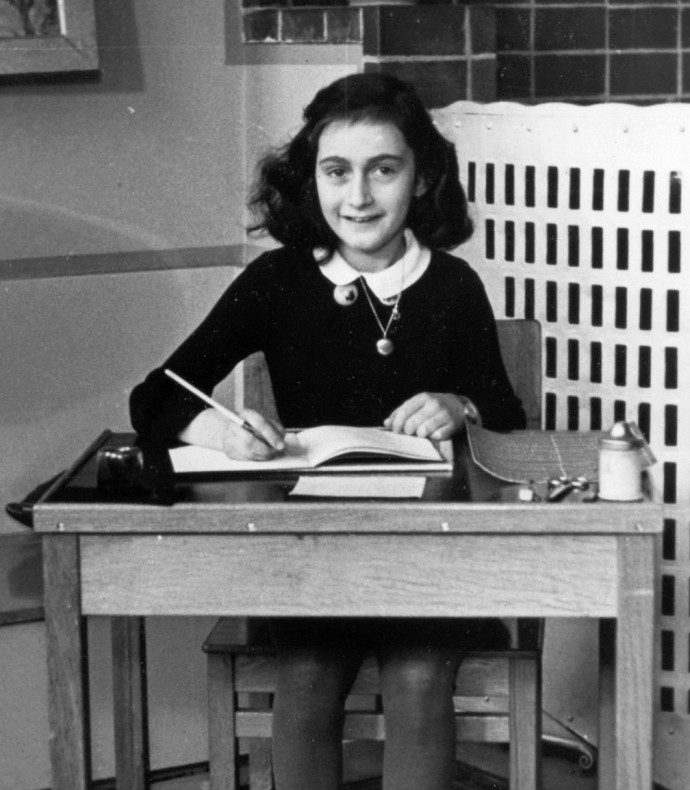Holocaust survivor Hannah (Hanneli) Pick-Goslar, who lectured around the world about her past and was Anne Frank’s close friend, even being mentioned in her in her diary, passed away on Friday, two weeks before her 94th birthday.
The Holocaust survivor left behind three children, 11 grandchildren and 31 great-grandchildren. Her funeral was scheduled to take place late Saturday night from the Sanhedria funeral home to the Mount of Olives.
Her personal story has been documented in many books and films in different languages. The last of them, My Best Friend Anne Frank, aired on Netflix less than a year ago.
Pick-Goslar was born in Berlin and moved with her family to the Netherlands when the Nazis came to power, living near the home of the Frank family.
Described in Frank’s diary as one of her best friends, the two girls first met at an Amsterdam grocery store while shopping with their mothers shortly after both families fled from Germany in 1933.

Frank wrote about Goslar several times in the diary, describing her personality and her life at home, and calling the Goslar household “really a sight.” After going into hiding, she wrote that “Hanneli,” as Hannah was then called, appeared in her dreams.
The young girl wrote that she hadn’t thought of her school friend for at least a year before the first dream.
“I hadn’t forgotten about her entirely and yet it wasn’t until I saw her before me that I thought of all her suffering,” Frank writes in the diary on November 27, 1943, nearly a year and a half after she went into hiding.
She dreamed of Goslar once more in the next month. She wondered if her friend was still alive and asked God to watch over her.
“Hanneli, you’re a reminder of what my fate could have been,” Anne writes. “I hope that you live to the end of the war and return to us.”
“Hanneli, you’re a reminder of what my fate could have been, I hope that you live to the end of the war and return to us.”
Anne Frank
The Goslar family
Goslar’s father was the head of the German Press Bureau and adviser to the interior minister until 1933, as well as one of the founders of the Hapoel Mizrahi movement in Germany. Her grandfather on her mother’s side, attorney Alfred Clay, was the head of the Jewish community in Berlin and adviser to Theodor (Benjamin Ze’ev) Herzl.
The Goslar family was sent to the Westerbork concentration camp and later to Bergen-Belsen, where her father died. At the age of 17, Goslar was among the passengers of the “lost train” that left Bergen-Belsen for Theresienstadt and never reached its destination – and at the end of the war, she was released from the Trevitz camp with her younger sister.
In 1947, after a period of convalescence in Switzerland, she immigrated to Israel and enrolled in nursing studies at the Bikur Holim hospital in Jerusalem.
“She said that when she got out of the extermination camps she would be a nurse – and she fulfilled her dream,” her daughter Ruthie told Ynet. “She worked at ‘Tipat Halav’ [family clinics for mother and infant] in the immigrant camps and in the communities of the Jerusalem Corridor.”
Hanna's family recalls their mother's life
Ruthie said that her mother dedicated her life to the fight against antisemitism and to conveying the story of her life and that of her friend Frank. "Already in 1957 she traveled to the United States to tell her story about the Holocaust."
Goslar married Pinchas Walter Pick, one of the founders of Israeli intelligence, who later worked as a military historian and was one of the editors of the Hebrew Encyclopedia.
Their daughter said that since his death, Goslar traveled around the world to lecture to different audiences.
“She met kings, presidents and prime ministers,” she said. “She was invited to interviews on television, radio and newspapers and in one day she could lecture in four different places. Everyone just wanted to meet her and hear about her story and her friendship with Anne Frank.”
“This year, too, she spoke on Zoom with students in France and Germany. She always conveyed messages of tolerance and respect towards each other,” Ruthie said.
Rafi Meir, Goslar’s grandson, added that “she was an amazing grandmother who took care of all her 11 grandchildren and 31 great-grandchildren.”
His mother added that “all her life she cared for others, even when she was sick. Even when she was connected to a ventilator, she thought of the nurse and asked her to go rest. The most humble woman in the world.”
Aviva Loeb contributed to this report.
